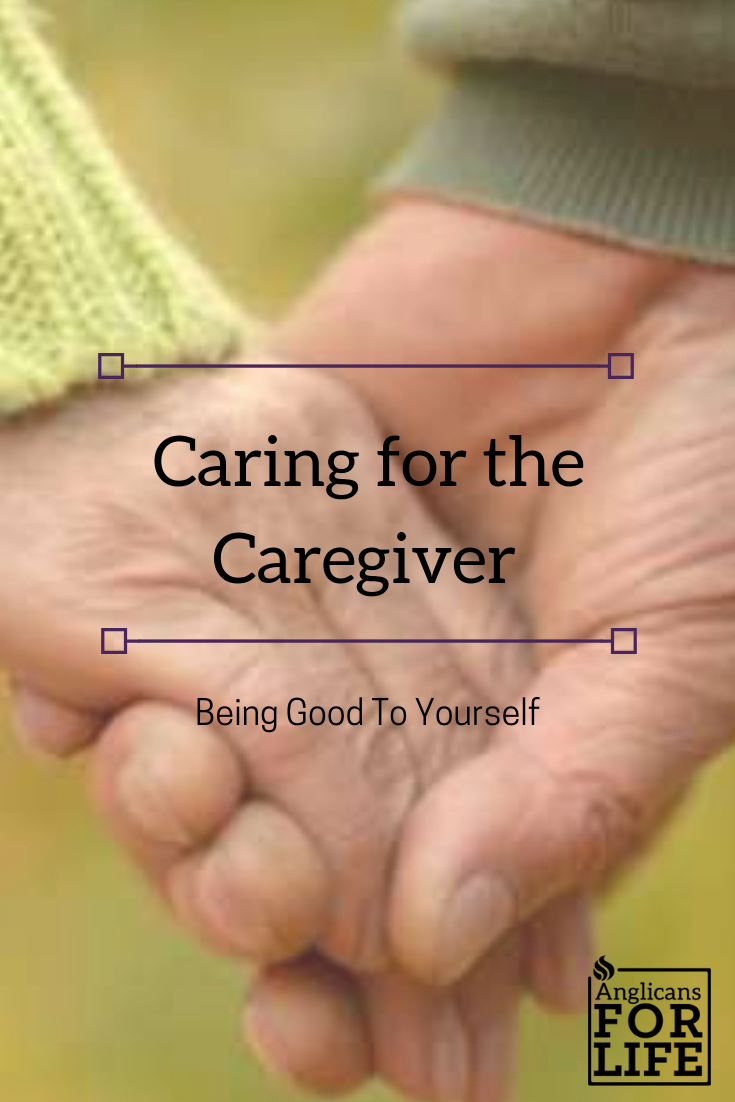You are exhausted and run down, mentally and physically. You can’t remember the last time you had some time to yourself, and you are increasingly feeling isolated from the “normal” world. You are concerned about finances and worried about what the future will bring.
Congratulations, you just read about what it often feels like to be a caregiver. According to the Mayo Clinic, those are some signs that a caregiver is experiencing caregiver stress or caregiver burnout. Too often, whether the person needing care is an aging parent, an ailing spouse, or simply a friend who needs help, caregivers will neglect their own health and well-being while giving care to others. They may function on too little sleep, become  easily irritated and angry, lose interest in favorite activities or hobbies, have frequent headaches or body aches, or simply feel sad. For those of you who are or have been caregivers, the previous symptoms may seem altogether too familiar. In addition, most caregivers (who are most often women aged between 40 to 60 years old) also have careers, spouses, and busy children or teenagers of their own to take care of, all of which often add to the burden of stress.
easily irritated and angry, lose interest in favorite activities or hobbies, have frequent headaches or body aches, or simply feel sad. For those of you who are or have been caregivers, the previous symptoms may seem altogether too familiar. In addition, most caregivers (who are most often women aged between 40 to 60 years old) also have careers, spouses, and busy children or teenagers of their own to take care of, all of which often add to the burden of stress.
But perhaps you are reading this and giving a mental shrug. So what? Life is hard for everyone. It’s pretty normal to feel overwhelmed, right? While it may be normal to be stressed, sometimes caregiver stress goes beyond what is “normal”. Researchers at Yale University School of Medicine found that nearly one third of caregivers who are nursing terminally ill loved ones at home suffer from depression. Additionally, research in Great Britain found that about one in four family caregivers meet the clinical criteria for anxiety. [1]
So I think it is safe to say that if you are a caregiver for a friend or family member, no matter what feelings you may think are “normal” in your circumstances, it’s important to take care of yourself, mentally, physically, and spiritually. Here are some suggestions:
1) Take regular breaks
We schedule breaks during the standard work day, so why wouldn’t we schedule breaks for ourselves when working as a caregiver? Especially for those who are giving around the clock care, schedule time to be alone. Ask a friend or other family member to relieve you. Spend time doing things that relax you and not discussing your caregiver role.
2) Be healthy
Easier said than done, I know. With everything else in your life, it is so easy to go to bed late and still get up early, cut out exercise, and order take out. But the old adage is entirely true—you really can’t take care of others if you aren’t taking care of yourself. Thinking about it that way, taking care of yourself is an important aspect of giving care! But of all the self-care goals, the most important and precious one is sleep. Try to go to sleep at the same time every night. Try to not scroll through social media feeds or watch exciting TV before going to sleep. You may even try taking a nap while the person you are caring for is napping!
3) Set Reasonable Goals and Say “No”
Is it reasonable to volunteer for weeknight programs at your church, care for your aging parent, pick up the kids from school, get dinner on the table, and have quality time with your spouse? Maybe for some people—but not so for everyone! Make care goals for yourself, your family, and the person you are caring for. Make sure they are reasonable and attainable. And, occasionally, you have to do the unimaginable—say no! You don’t have to take care of everyone and everything. In fact, when you stretch yourself between so many things that need your time and attention, you won’t be able to focus on what is most important.
4) Don’t be afraid to ask for practical or emotional help
The only person who expects you to be able to do everything is yourself. But sometimes those around you don’t realize how stressed and overwhelmed you are until you say something and are honest about what you need. Ask for help. Arrange a friend or other family member to drop off or pick up children from after school activities. Encourage teenaged children to go grocery shopping. Schedule friends or family members to take aging loved ones to routine doctor’s appointments or activities. Make a list of things that you need help with and when people ask if you need assistance, take them up on it! But also remember to ask for help emotionally, as well. It’s never easy watching a loved one or friend decline in health and worries about their condition or treatment can weigh on you. Ask friends from church to be praying for you. Take your fears to the Lord before they start to fester in your heart.
November is National Family Caregivers Month, which is a great time to honor those who have given their time and energy to love and serve others. Do you know a caregiver who is need of some rest and help? Volunteer to help them. Even if they automatically say they don’t need help, make sure to tell them that you are available for them if or when they do. Take time to visit with aging loved ones and friends and give caregivers a chance to rest. Be kind to those who give kindness—because caregivers embody the spirit of what it means to be a suffering servant. Bless those who bless others.
[1] Swartz, Karen L, M.D. Depression and Anxiety. (2007) John Hopkins, pg 12.



